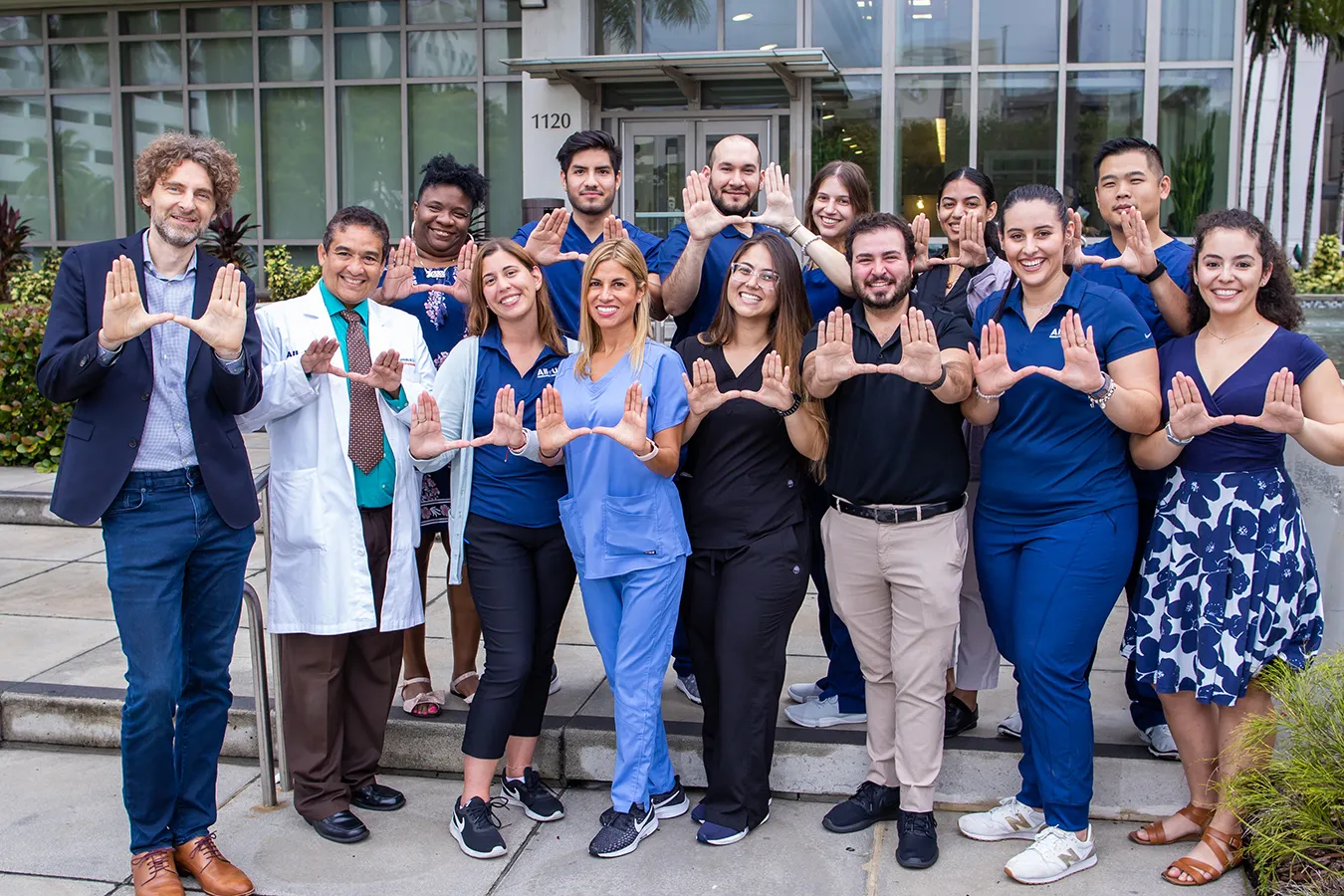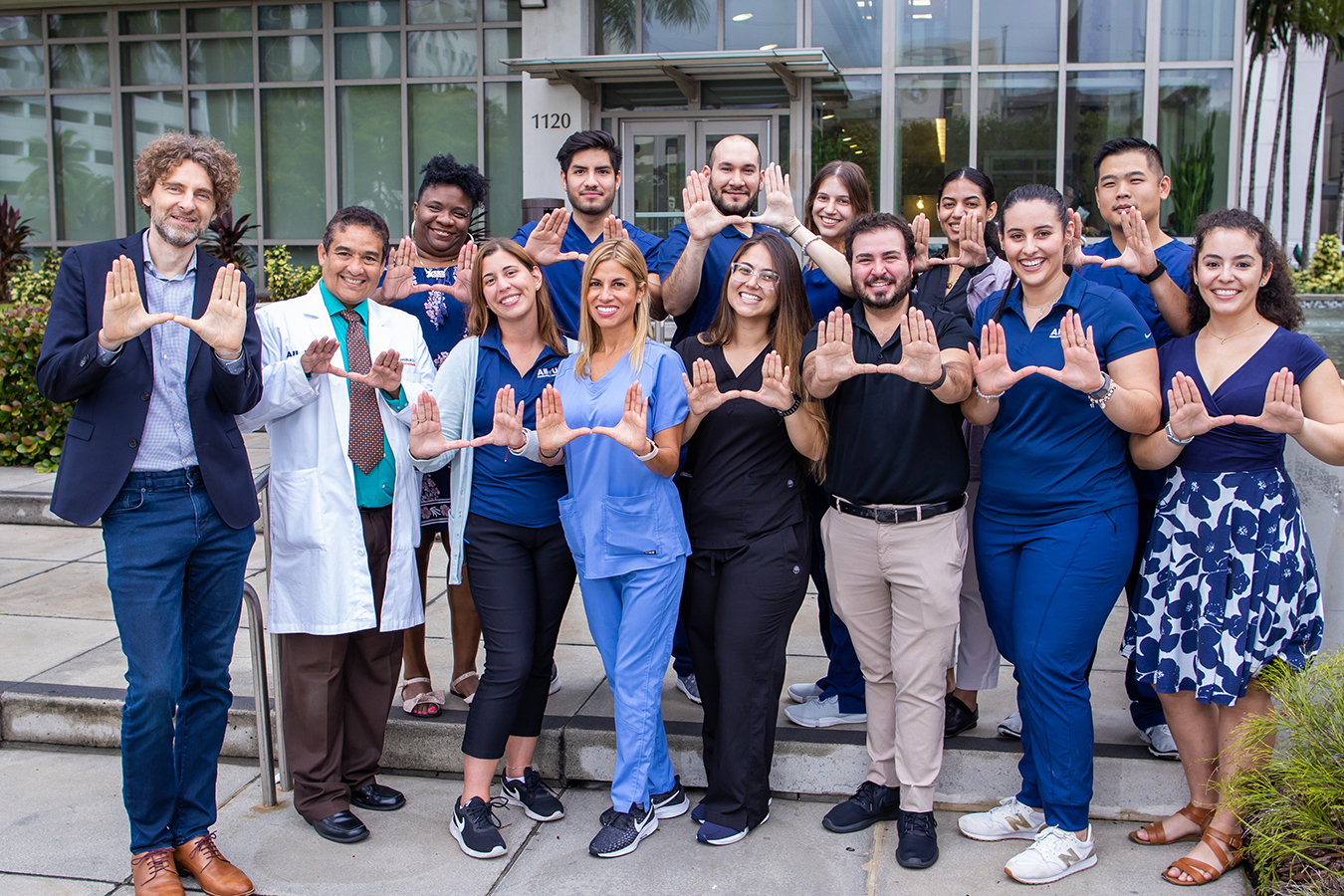You Can Help to Advance Genetic Research

You may not be a scientist, but you can play a vital part in a medical research program that looks likely to be the biggest one ever undertaken.
“We need people from all walks of life to help us with a huge genetic research program that was launched in 2016 by The National Institutes of Health,” says Stephan Zuchner, M.D., Ph.D., a world-renowned geneticist. He is the principal investigator for the All of Us Research Program at the University of Miami Miller School of Medicine.
“All of Us offers so much promise for major research breakthroughs in prevention and treatment that it may even dwarf the human genome project in importance,” he says.
You can join the All of Us effort, which can provide real health benefits to you and your family.
If you do, you will also be serving your community and all humanity. Participation is open to anyone 18 years old or older living in the U.S. Proof of citizenship is not required.
“People who participate will donate samples of blood and saliva so that we can analyze their genetic material,” Dr. Zuchner says. Participants will also fill out surveys about their medical and family history and health and lifestyle habits. They will share facts about how easy or hard it is to access care, their COVID-19 experiences, and more.
Each participant’s DNA will undergo whole-genome sequencing. “This process costs roughly $1,000 today, but the program performs this analysis at no cost to people who enroll and who consent to receive the analysis,” says Dr. Zuchner. He points out that 20 years ago, the process cost about $1 million.
The national All of Us program will last at least 10 years.
“People who join the program will be asked for updates to the information that they provide from time to time,” says Dr. Zuchner. In turn, as findings that may be relevant to a particular person’s health emerge, that person will have an opportunity to consent to receive word of them from All of Us.
Of course, participants are also free to leave the program should they choose.
“Eventually, findings from this program will help us do better at diagnosing illnesses in their earliest stages when they are most treatable,” Dr. Zuchner says. “We also foresee all sorts of important discoveries coming out of this effort that will help us prevent illnesses in the first place.”
The findings will also help scientists design treatments that are customized to work best for specific people. This approach is called precision medicine.
To finance this effort, the U.S. Congress has authorized a total of $1.5 billion over 10 years, as spelled out in The 21st Century Cures Act, in December 2016,
Seeking more than 1 million people.

“Our goal is to collect detailed health data from one million people, with this becoming the biggest medical research program and database ever to exist,” Dr. Zuchner says.
Having diverse participants contribute their own medical and genetic data is vital, he says.
“For a long time, there has been a bias in biomedical research,” Dr. Zuchner says. “This meant that 90% or more of the people enrolled in all medical research studies and clinical trials have been white people of northern European ancestry, usually middle class.”
The All of Us program will do better, Dr. Zuchner says.
“The one million participants will reflect what America looks like today, in terms of where their ancestors came from and the color of their skin,” he says.
About 80% of the data for the program will come from underrepresented groups. These include Black people, Latinx people, Native Americans, and women.
“If you are young or old, and whatever your ethnic background may be, All of Us needs people like you,” says Jose Guillermo Melo, senior manager for Research Support at the University of Miami. He is volunteering his own genetic and medical information.
Our goal is to include people who live in all kinds of different settings, from small towns to major cities.
Jose Melo
The program also needs participants with different schooling and household income backgrounds.
The University of Miami is one of 10 medical centers that are enrolling participants in All of Us. “South Florida has one of the most ethnically diverse populations in the USA, so we fit naturally with the goals of this program,” Mr. Melo says.
Why should I participate?
The program will send you information about where your ancestors appear to have lived about 400 or 500 years ago. It will also send information on specific traits, such as:
- Whether cilantro tastes like soap to you or not
- Whether you do or do not have trouble digesting dairy foods, such as milk or ice cream
- Whether or not caffeine strongly affects you – some people get jittery on just a little caffeine. Others can consume a lot without feeling any energizing effects.
- Whether your earwax is wet or dry
All of Us may also send you health information that you can act upon, if you choose to. “You can find out about your risk for developing certain conditions, such as breast and ovarian cancer.” Armed with such knowledge, you may be able to take preventive steps to slow down or avoid specific health problems.
“The national All of Us team has put together a list of about 59 genes where mutations are being flagged for participants,” said Dr. Zuchner. “Mutations are genetic alterations. If a person has one or more of these mutations, medical action is possible, and it may be in their best interest, so we let participants know.”
What about my privacy?
“All the data that All of Us collects will be housed centrally under strict oversight,” Mr. Melo says. It will be protected through multiple encrypted security layers.
The program will never sell anyone’s data. And all the data is de-identified, which means researchers don’t obtain information about a donor’s name or where they live.
“The data is being collected exclusively for research purposes. Only qualified medical researchers, including students in health science fields, will be given access to it,” Dr. Zuchner says.
Is this like commercial ancestry testing?
“Taking part in All of Us is different from sending your saliva sample to a commercial DNA testing company, in a lot of ways,” Melo says. “Participants pay nothing to be part of All of Us.”
You receive a small incentive of $25 for joining the program.
Also, the program offers you the opportunity to discuss your results with a genetic counselor if you like, at no charge.
DNA results back may take a bit longer to get back than the three- or four-weeks that are typical with commercial DNA testing.
Participation involves an ongoing back and forth.
“This is a longitudinal study, and that means people will hear from us now and again,” Dr. Zuchner says. “We may ask for updates, as people’s habits and situations that impact their health often change, and as they grow older.”
Also, researchers using the dataset may make discoveries that could be significant for a participant or their families. The program will then reach out to that participant, Mr. Melo explains.
Take pride in being part of an effort to expand medical knowledge, improve peoples’ health, and eventually save lives.
Interested in participating in All of Us research?
- Visit JoinAllofUS.org/Miami
- Call 305-243-8380
- Text “research” to 313131
Follow All of Us on Facebook, Instagram, and Twitter, at @AllofUSUM.
Milly Dawson is a contributing writer for UMiami Health News.
Tags: All of Us Research Program, Dr. Stephan Zuchner, research in Miami
